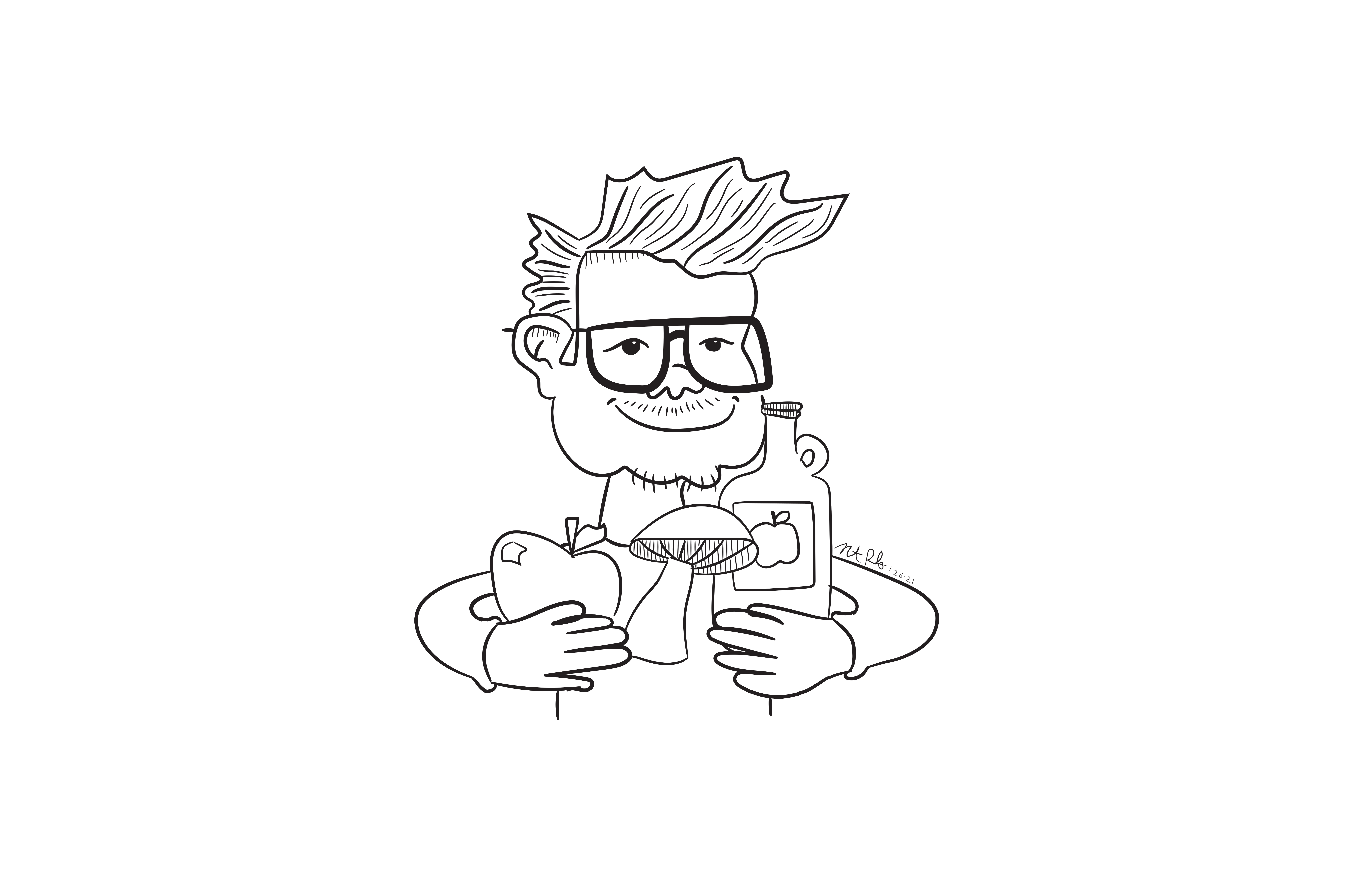Two apple trees, biology, and a high school chemistry class paved senior sustainability major, Harrison Gingerich’s future.
Gingerich grew up in Canby, Oregon with two apple trees in his backyard.The apple trees, planted when Gingerich was just 8 years old, have led him to his passion today — experimenting with growing food and making drinks.
He dreams of owning his own brewery or a small business where he gets to create foods or beverages every single day.
He wants to make people happy through his work.
“Being a sustainability and specifically, a sustainable foods systems major has taught me all about sustainable business practices while giving me an entreupenurship sense,” Gingerich said.
One Sunday, just like any other Sunday, Gingerich and his family got ready and went to Zion Mennonite Church.
At church, he bumped into a familiar face, Steve Masingila, a Goshen College alumni.
In a lengthy conversation, Gingerich spoke proudly about his apple trees and ironically found out that Masingila owned a cider press.
Since that conversation, Gingerich has been pressing apples every year to make cider.
He picks 15-20 brussels of apples a year and presses enough cider to make around 12-15 gallons.
“The cider is far more tangy and ripe than the stuff you can get at the store,” Gingerich said. “You taste it and, wow, it has a lot of developed flavor.”
Usually Gingerich freezes the cider, but last year, he decided to try and make something different back at home in Canby.
“It keeps longer and better if you ferment it, so I decided to make hard cider this year,” Gingerch said.
In order to make it, he needed to buy cider yeast, pectin and ascorbic acid from a brew supply store.
All of the ingredients go into a carboy with the cider and then into the closet to ferment.
Because Gingerich is currently finishing up his last semester in Goshen, his dad was responsible for transferring the cider into another carboy after three weeks.
The transfer from one carboy to another helps filter out the sediment and Gingerich expects to have five gallons of hard cider.
Gingerich’s family enjoys drinking his cider around the house. They also heat up cider for events and gatherings that their family has, especially for parties around harvest.
He also gives cider to family and friends as a gift.
“Really, what I want is to be able to show my creativity and interact with people by making something that those people will enjoy,” Gingerich said.
And cider was just the start.
Over the summer, Gringerich grew poblano peppers, anaheim peppers, habanero peppers, and serrano peppers in his greenhouse. Oftentimes, he incorporates these peppers into soups and chili flakes for cooking purposes.
“I want to use what I grow,” Gingerich said.
Currently, Gingerich is also growing oyster mushrooms in the basement of his off-campus living space.
“They taste similar to button mushrooms, but the texture is a little bit meatier and the taste reminds me of seafood: hence the name, oyster mushrooms,” he said.
Although Gingerich doesn’t know exactly where he’ll end up, he hopes to be making his own unique products, selling them in a business capacity, and connecting with others.
“I want to connect with you through my products. It’s a creative outlet for me and also a social outlet for me,” he explained.
“Ultimately, I want to brew beer other people like. I want to make people happy by brewing beer, or by doing whatever I do,” Gingerich said. “If it’s a bakery, I want to make bread people like. If I make cheese, I want to make cheese people like.”



